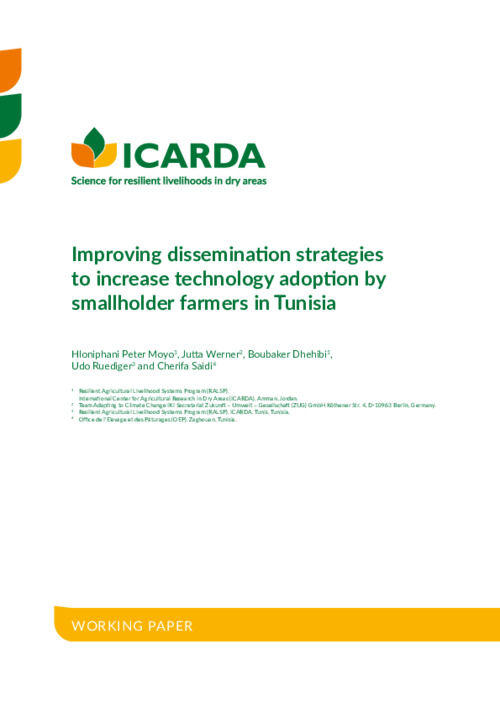Improving dissemination strategies to increase technology adoption by smallholder farmers in Tunisia
Abstract
With the human population increasing drastically in recent times, improving agricultural productivity will be important in maintaining livelihoods and raising living standards. This project investigated the adoption of farming technologies in two governorates of Tunisia: Zaghouan and Kairouan. Through a questionnaire approach, a total of 700 farmers from both governorates were stratified according to access to inputs, to technical information, and to market information. Preliminary results revealed a general low knowledge of improved barley varieties, with less than 40% in both governorates knowing only three local varieties: Rihane, Swihili, and Arbi. Distance appears to be an important factor determining the knowledge/adoption of technologies in both governorates, with a high proportion of farmers having to travel more than 13 km to access markets and extension offices. Considerable proportions of farmer respondents indicated that they had heard of technologies such as feed blocks and ear tags (10–30% in Zaghouan and 30–60% in Kairouan); however, only low proportions of farmers actually used these technologies. The potential gains to farming from technology adoption in arid environments could be immense, although more effort through extension work is needed to ensure that farmers adopt new innovations and so enhance agriculture production

